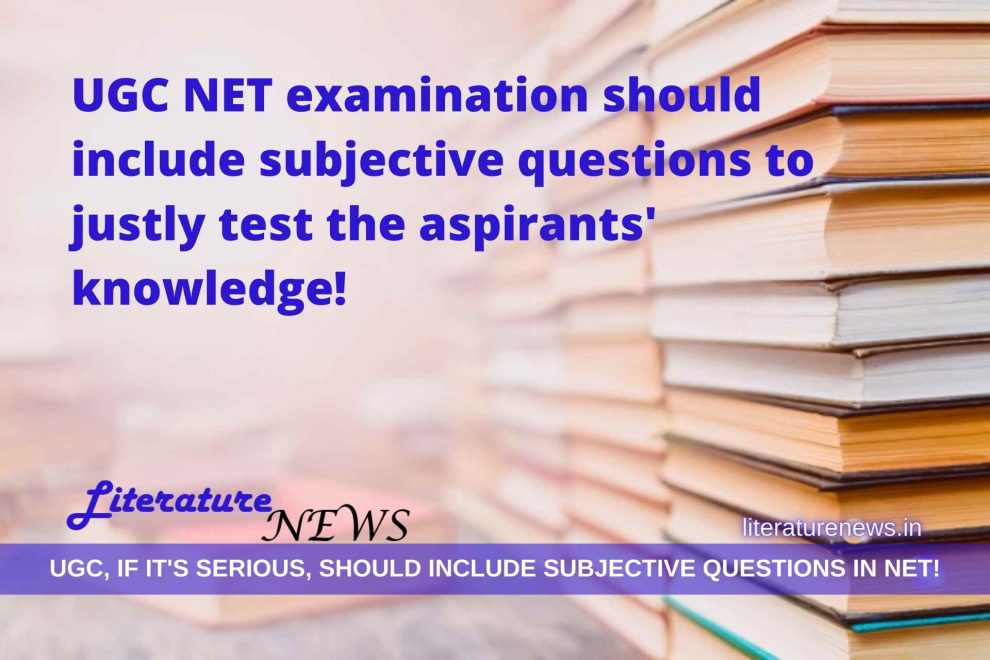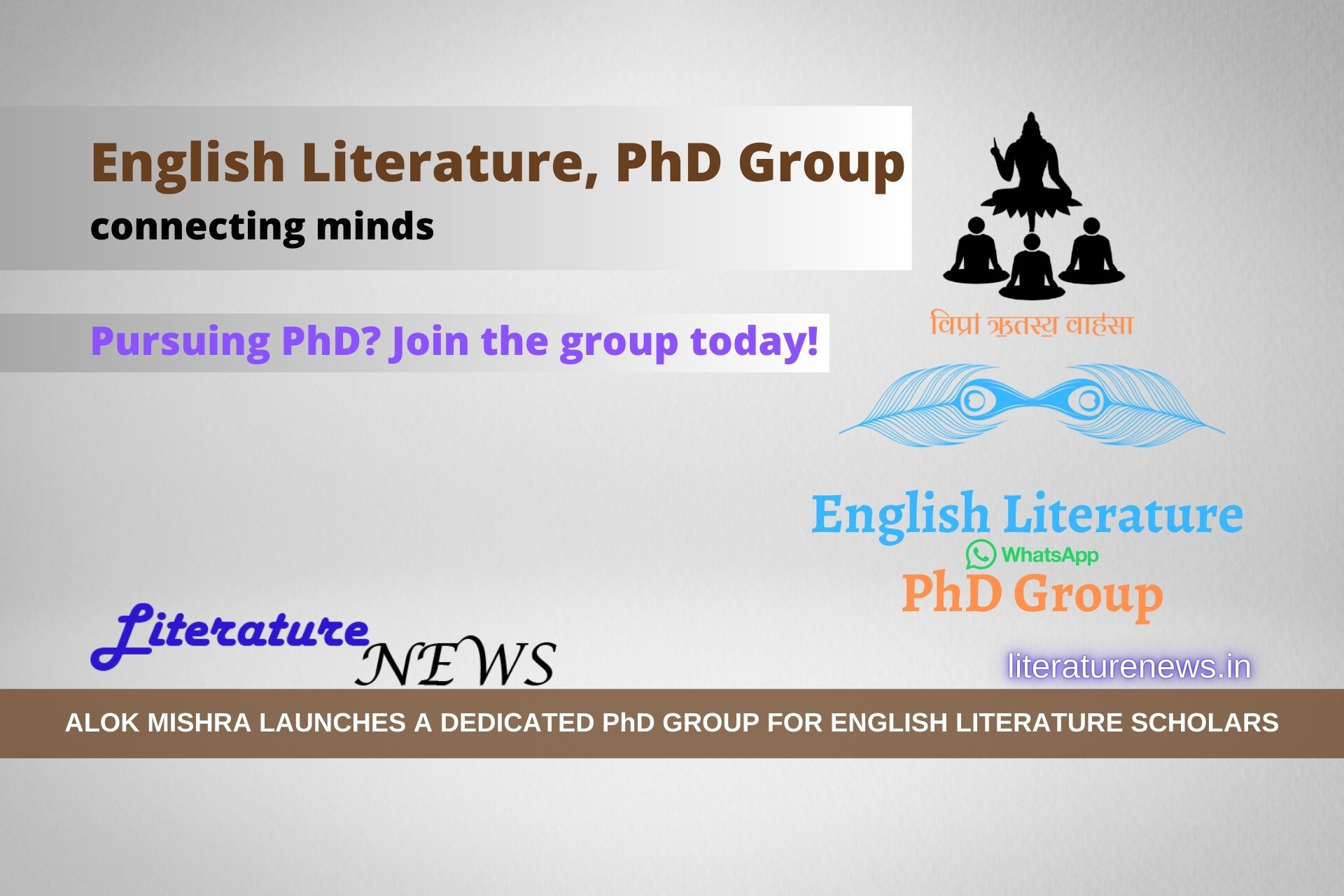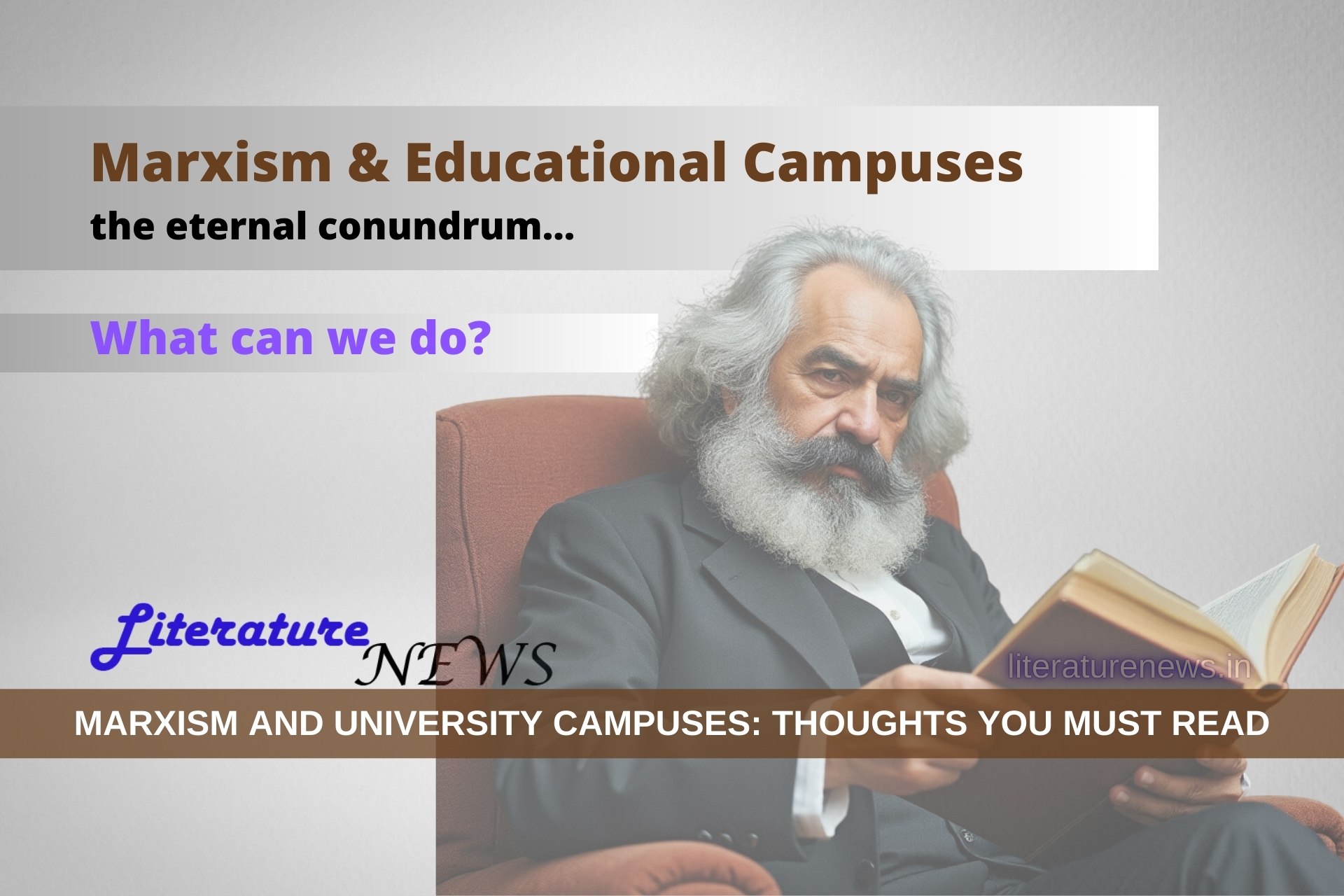UGC NET, once upon a time, used to put forth long-answer questions and it was mandatory for all those who aspired to qualify. However, for many years now, the objective mode of examination that UGC has come up with cannot tell you the exact qualities that an aspirant possesses or fixate the certain qualities that an aspirant should have to become a professor. Personally, I know many students who have qualified for a JRF but, unfortunately, cannot write a page about any topic related to their subject. And, to be clear, we are mostly focused on literature subjects – English, Hindi, Sanskrit and others.
It is more than merely ironic that students are asked to answer long questions in order to get their logic, arguments, ideas and thoughts tested during high school, intermediate, graduation and post-graduation. However, when it comes to becoming eligible to start a career as a professor, the authority as decorated as UGC finds it enough to get some objective questions answered and even without conducting a post-qualification interview confers the honours upon aspirants – the future professors who might prepare IAS and other highly qualified persons. That is why a very catastrophic future is staring at us where the depth is lacking, original research is absent and logical thinking is nearly dead!
Imagine a simple scenario. An aspirant remembers everything about Shakespeare’s life, titles of his plays, protagonists of all his plays and a few key dates. He does the same for many other major figures in English literature. He sits in the NET examination and qualifies. He does not know anything about Shakespeare’s art as a dramatist, the power of his verse, Tennyson’s poetry or Arnold’s prose. However, he does know when was a work published and when did a literary figure die. Will he be able to teach literature? Ask yourself. Ask the UGC. Ask the government.
The same stands true for Hindi, Sanskrit and any other literature. We cannot judge the prowess of an aspirant by throwing a few date-based, name-based or key events based questions. We need to know how can a person develop arguments, how can a person critically examine the works of literature, how can a person analyse the same and put his or her ideas in a logical sequence to prove a point or make an assertion. Anything otherwise is a crude joke on our education system at the highest level and people sitting on the higher pedestals are directly responsible for this destruction!
A case with 30 objectives and 70 marks for subjective questions can do the best if UGC is too keen on preparing scholars with sharp memory. However, anything beyond that is not justified by any means and students should come forward to oppose it!
by Ashish for Literature News






Add Comment